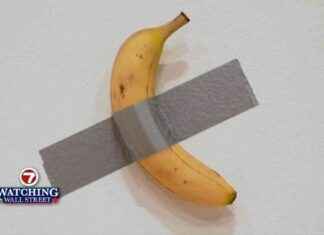“What I want is to go back to the pillars that I already had because they were good at an industrial level.” With that basic project, Jordi Cazorla (Barcelona, ??1969) landed last week at the Celsa facilities in Castellbisbal, once the founding family (the Rubiralta) were stripped of their shares, which passed into the hands of the creditor funds by a court ruling.
It arrives just when last year’s accounts are being audited to present the company’s 2023 results with an unqualified audit and prepared for the future with the new owners. Celsa, which is the third largest consumer of electricity in Spain, has already made the transition to clean energy (its furnaces are electric) and has been practicing circularity for years, since the basic raw material is scrap metal.
Although the new CEO is not from the metallurgical sector, he does have years of experience in large industrial companies such as HP, Ideal Standard or DS Smith. He has worked from several countries. “I decided on Celsa for many reasons. First, I really liked that it was a company from here. I am very used to it and I have worked in many American, English, Belgian companies…”, he explains. “And another important point is that it was an industrial company with a long history. “I have an industrial vocation,” adds Cazorla, an industrial engineer by training and with an MBA from the University of Barcelona. But he is not one of those engineers who dismantles the TV at home to fix the screen. “I have the intuition to do it but I have come to the conclusion that I am no good, I am not a repairer of things.”
Married with a daughter, he lives in Sitges, where he was born and where his entire family resides. “It is another of the advantages – he jokes – of working at Celsa, since he is very close to home.” He usually walks through Garraf, although sometimes he escapes to climb a peak like Kilimanjaro, which he climbed years ago. In Sitges he participates in the cultural and sports life of the city, where he has been part of the castellera group, the basketball club and the chess club. Although his true passion, scuba diving, he cannot practice in his town and whenever he can he escapes to Estartit. “I’ve scuba-dived all over the world: Indonesia, the Red Sea, Mexico, the Maldives,” he recalls. And he assures that he has never had the feeling of danger despite being an activity not without risks.
Where he saw no risks was in his new job, which he accepted after a brief period of reflection. “They contacted me before the judicial resolution came out. At that moment nothing could be said,” explains Cazorla, who has had no relationship with his predecessor, Francesc Rubiralta. The new CEO affirms that he has been well received by the staff, although they threatened with an indefinite strike that was deactivated. “My last company had about 9,000 employees; I have been running companies with thousands of workers for many years (20); In union issues I have seen all colors,” highlights the executive.
Cazorla arrives in the steelmaking business at a time when a certain slowdown is expected. “I see the sector as very good, especially for companies with electric ovens such as Celsa. I think it is an advantage in terms of sustainability. It is a sector that, now, is specifically in a low part of the cycle but, as in all cycles, it will go up,” he highlights.
And China’s role? “China is exporting to Europe, although I think it will decline. If they do not convert to use green energy, they will have more and more difficulties,” he responds before remembering that the new European Union tax on the import of products that do not comply with environmental standards can stop imports from the Asian giant. .
Just in case, Cazorla takes a breath and immerses himself in the steel business to make the company profitable and sustainable.








